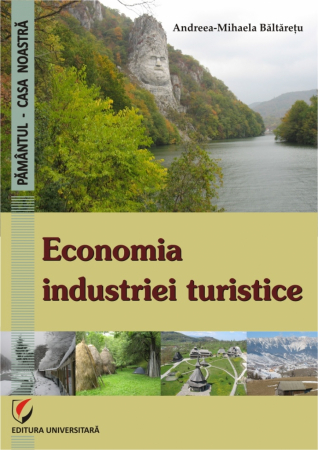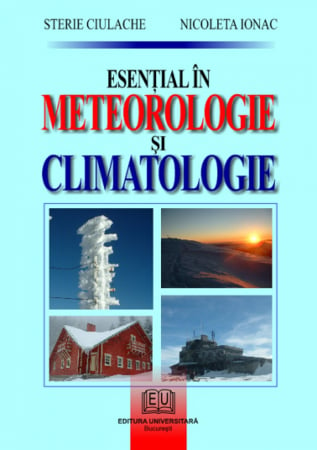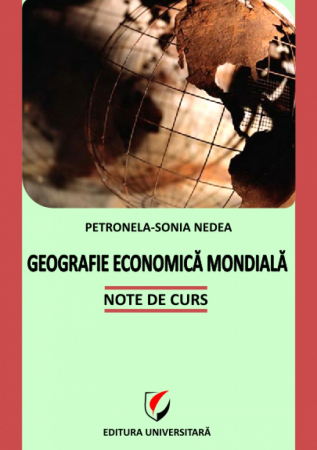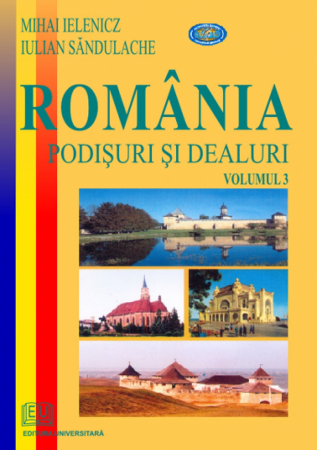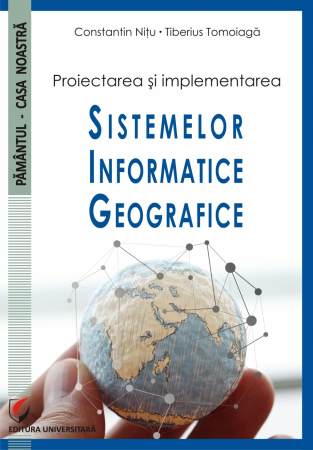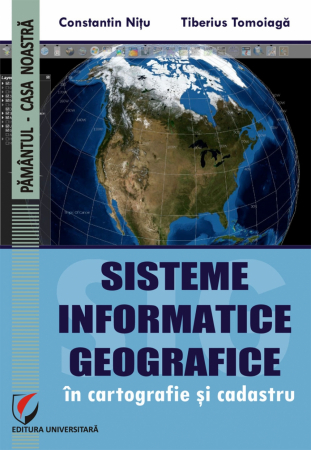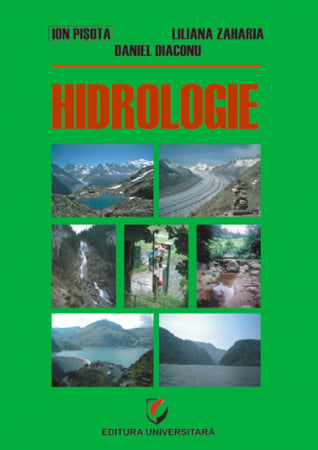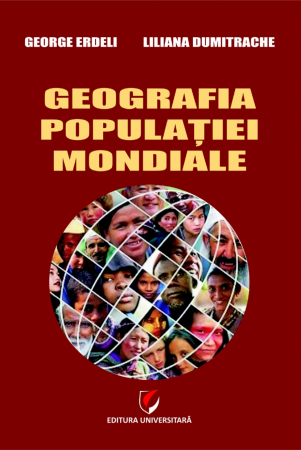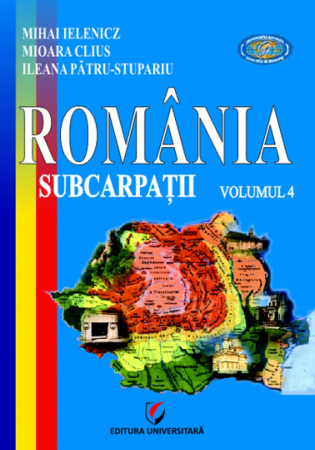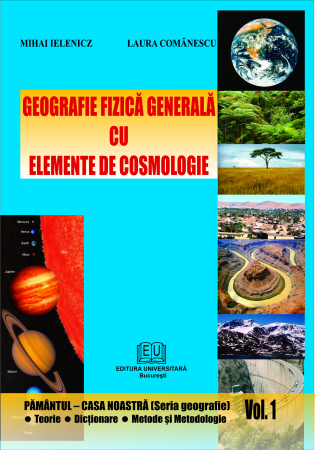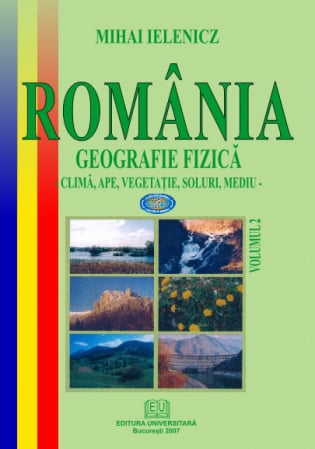Manuscript proposals: [email protected] / 0745 204 115 //// Tracking orders Individuals / Sales: 0745 200 357 / Orders Legal entities: 0721 722 783
ISBN: 978-606-591-636-4
DOI: 10.5682/9786065916364
Publisher year: 2013
Edition: I
Pages: 216
Publisher: Editura Universitară
Author: Ildiko Ioan, Florina Bran
Product Code:
9786065916364
Do you need help?
0745 200 357
- Description
- Download (1)
- Authors
- Content
- More details
- Reviews (0)
The socio-economic activities form the anthropic universe, define the landmarks of each individual and of the society as a whole. What remains outside this "circle" has long been seen as a given, beyond the human possibilities to influence its evolution in one way or another. Therefore, "external" events and processes have been the subject of two approaches: adaptation and control. The relative proportions of the two strategies have varied over time and continue to be very different today from country to country.
The actuality remains in the plane of perceptions under the empire of adaptation, submission, acceptance of nature as a superior force, able to manage its own balances. However, a realistic approach reveals the fact that the situation is completely different. The capacity of society, of the economic mechanisms it manages, to influence the environment and the systems in which it is organized has increased enormously in the last decades. Influence is desired, under the rule of the need to control unfavorable factors, but also undesirable, manifested as a side effect of socio-economic activities. Such developments have brought to the attention of the public the issue of the environment.
The approach to ecological issues started with findings and observations on some processes considered negative. The need to adopt decisions in order to eliminate or prevent them motivated in-depth investigations, carried out theoretically and practically, thus making available an impressive volume of information on the functioning of natural systems, how to correlate processes in nature and particularities " intersections ”with human activities.
The investigation of the causality of the processes, an inherent approach in the process of scientific analysis, highlighted the convergence of the motivational lines towards the economy, towards the way in which man manages the "natural dowry of resources" of the planet.
Ecology is a science based on multidisciplinary knowledge, its content being the work of specialists from various professions. The results of ecological research must be part of the content of economic decisions at the level of company, national economy or world economy. The great problems of mankind have been supplemented by another, the problem of ecological systems.
In this context, the book "Earth - House of Life" aims to provide relevant specialists in eco-economics, the interested public, those directly involved in environmental protection and ecological reconstruction relevant information on how systems are organized. ecological, the factors that condition the maintenance or, on the contrary, the destruction of the balances.
The actuality remains in the plane of perceptions under the empire of adaptation, submission, acceptance of nature as a superior force, able to manage its own balances. However, a realistic approach reveals the fact that the situation is completely different. The capacity of society, of the economic mechanisms it manages, to influence the environment and the systems in which it is organized has increased enormously in the last decades. Influence is desired, under the rule of the need to control unfavorable factors, but also undesirable, manifested as a side effect of socio-economic activities. Such developments have brought to the attention of the public the issue of the environment.
The approach to ecological issues started with findings and observations on some processes considered negative. The need to adopt decisions in order to eliminate or prevent them motivated in-depth investigations, carried out theoretically and practically, thus making available an impressive volume of information on the functioning of natural systems, how to correlate processes in nature and particularities " intersections ”with human activities.
The investigation of the causality of the processes, an inherent approach in the process of scientific analysis, highlighted the convergence of the motivational lines towards the economy, towards the way in which man manages the "natural dowry of resources" of the planet.
Ecology is a science based on multidisciplinary knowledge, its content being the work of specialists from various professions. The results of ecological research must be part of the content of economic decisions at the level of company, national economy or world economy. The great problems of mankind have been supplemented by another, the problem of ecological systems.
In this context, the book "Earth - House of Life" aims to provide relevant specialists in eco-economics, the interested public, those directly involved in environmental protection and ecological reconstruction relevant information on how systems are organized. ecological, the factors that condition the maintenance or, on the contrary, the destruction of the balances.
-
TERRA. House of Life
Download
FLORINA BRAN
ILDIKO IOAN
ILDIKO IOAN
PREFACE / 9
1. ECOLOGY SCIENCE / 11
1.1 Content and object of study / 11
1.2 Relationship with other sciences / 14
1.3 Brief history / 18
1.4 Study method / 20
2. SYSTEMIC THINKING / 23
2.1 Thermodynamics of open systems / 23
2.2 The evolution of interpretation models in ecological research / 26
3. THE ECOLOGICAL PHENOMENON / 31
3.1 Environment - concept and typology / 31
3.2 Principles of ecological processes / 34
3.3 Ecological factors - laws of action / 38
4. THE BIOSPHERE ECONOMY / 46
4.1 The content of the biosphere as an ecological system / 46
4.2 Biosphere - component of the environment / 47
4.3 Biosphere structure / 50
4.4 Biogeochemical cycles / 55
4.5 Energy circulation in the biosphere / 65
4.6 The information mechanism / 69
5. ECOSYSTEM STRUCTURE / 75
5.1 The concept of ecosystem / 75
5.2 Functional structure / 77
5.2.1 Biotope / 77
5.2.2 Biocenosis / 80
5.2.3 Population ecology / 92
5.3 Spatial structure / 97
5.3.1 Horizontal structure / 97
5.3.2 Vertical structure / 98
5.4 Boundaries of the ecosystem / 100
6. ECOSYSTEM FUNCTIONS / 102
6.1 Biological productivity / 102
6.1.1 Energy value of biomass / 102
6.1.2 Productivity categories / 105
6.1.3 Ecological efficiency / 106
6.1.4 Factors of influence / 107
6.1.5 Energy flow / 110
6.2 Circulation of the substance / 111
6.2.1 The circuit of substances in terrestrial ecosystems / 112
6.2.2 The circuit of substances in lakes / 113
6.3 Ecological balance / 113
7. CHANGING ECOSYSTEMS IN TIME / 117
7.1 Ecosystem dynamics / 117
7.2 Ecological succession / 119
7.3 Classification of ecosystems / 120
8. NATURAL ECOSYSTEMS / 126
8.1 Origin and evolution / 126
8.2 Terrestrial ecosystems / 127
8.2.1 Forest / 127
8.2.2 Ecological functions of the forest / 131
8.2.3 The situation of forests in Romania / 136
8.2.4 Other terrestrial ecosystems / 136
8.3 Aquatic ecosystems / 138
8.3.1 Lentic ecosystems / 138
8.3.2 Black Sea / 139
8.3.3 Lotic ecosystems / 140
8.3.4 Danube Delta / 141
8.4 Effects of socio-economic activity / 143
9. MANAGED ECOSYSTEMS / 147
9.1 General characteristics / 147
9.2 Agricultural ecosystems / 148
9.2.1 Historical evolution / 148
9.2.2 Structure and functions / 149
9.2.3 Food security / 152
9.3 Urban ecosystems / 158
9.4 Rural ecosystems / 160
9.5 Industrial ecosystems / 162
10. POLLUTION AND ECOLOGICAL BALANCE / 165
10.1 Pollution and pollutants / 165
10.1.1 Classification of pollutants / 165
10.1.2 Pollution and properties of biological systems / 167
10.2 Circulation, dispersion and concentration of pollutants in the biosphere / 168
10.3 Sources of pollution / 169
10.3.1 Industry / 169
10.3.2 Agriculture / 171
10.3.3 Household activity / 177
10.3.4 Transport / 179
11. AIR POLLUTION / 180
11.1 Sources of air pollution / 180
11.2 Air pollutants and their effects / 182
11.3 Self-cleaning air / 186
11.4 Preventing and combating air pollution / 187
12. WATER POLLUTION / 189
12.1 Water resources / 189
12.2 Water consumers / 191
12.3 The action of pollutants on the biocenosis of surface waters / 192
12.4 Groundwater pollution / 195
12.5 Water self-purification / 196
12.6 Biological and biochemical processes / 197
12.7 Combating water pollution / 198
12.7.1 Water treatment methods / 199
13. SOIL POLLUTION / 203
13.1 The main functions of the soil / 203
13.2 Specific elements in soil pollution / 204
13.3 Types of soil pollution / 205
13.4 Self-cleaning and soil depollution / 212
SELECTIVE BIBLIOGRAPHY / 214
1. ECOLOGY SCIENCE / 11
1.1 Content and object of study / 11
1.2 Relationship with other sciences / 14
1.3 Brief history / 18
1.4 Study method / 20
2. SYSTEMIC THINKING / 23
2.1 Thermodynamics of open systems / 23
2.2 The evolution of interpretation models in ecological research / 26
3. THE ECOLOGICAL PHENOMENON / 31
3.1 Environment - concept and typology / 31
3.2 Principles of ecological processes / 34
3.3 Ecological factors - laws of action / 38
4. THE BIOSPHERE ECONOMY / 46
4.1 The content of the biosphere as an ecological system / 46
4.2 Biosphere - component of the environment / 47
4.3 Biosphere structure / 50
4.4 Biogeochemical cycles / 55
4.5 Energy circulation in the biosphere / 65
4.6 The information mechanism / 69
5. ECOSYSTEM STRUCTURE / 75
5.1 The concept of ecosystem / 75
5.2 Functional structure / 77
5.2.1 Biotope / 77
5.2.2 Biocenosis / 80
5.2.3 Population ecology / 92
5.3 Spatial structure / 97
5.3.1 Horizontal structure / 97
5.3.2 Vertical structure / 98
5.4 Boundaries of the ecosystem / 100
6. ECOSYSTEM FUNCTIONS / 102
6.1 Biological productivity / 102
6.1.1 Energy value of biomass / 102
6.1.2 Productivity categories / 105
6.1.3 Ecological efficiency / 106
6.1.4 Factors of influence / 107
6.1.5 Energy flow / 110
6.2 Circulation of the substance / 111
6.2.1 The circuit of substances in terrestrial ecosystems / 112
6.2.2 The circuit of substances in lakes / 113
6.3 Ecological balance / 113
7. CHANGING ECOSYSTEMS IN TIME / 117
7.1 Ecosystem dynamics / 117
7.2 Ecological succession / 119
7.3 Classification of ecosystems / 120
8. NATURAL ECOSYSTEMS / 126
8.1 Origin and evolution / 126
8.2 Terrestrial ecosystems / 127
8.2.1 Forest / 127
8.2.2 Ecological functions of the forest / 131
8.2.3 The situation of forests in Romania / 136
8.2.4 Other terrestrial ecosystems / 136
8.3 Aquatic ecosystems / 138
8.3.1 Lentic ecosystems / 138
8.3.2 Black Sea / 139
8.3.3 Lotic ecosystems / 140
8.3.4 Danube Delta / 141
8.4 Effects of socio-economic activity / 143
9. MANAGED ECOSYSTEMS / 147
9.1 General characteristics / 147
9.2 Agricultural ecosystems / 148
9.2.1 Historical evolution / 148
9.2.2 Structure and functions / 149
9.2.3 Food security / 152
9.3 Urban ecosystems / 158
9.4 Rural ecosystems / 160
9.5 Industrial ecosystems / 162
10. POLLUTION AND ECOLOGICAL BALANCE / 165
10.1 Pollution and pollutants / 165
10.1.1 Classification of pollutants / 165
10.1.2 Pollution and properties of biological systems / 167
10.2 Circulation, dispersion and concentration of pollutants in the biosphere / 168
10.3 Sources of pollution / 169
10.3.1 Industry / 169
10.3.2 Agriculture / 171
10.3.3 Household activity / 177
10.3.4 Transport / 179
11. AIR POLLUTION / 180
11.1 Sources of air pollution / 180
11.2 Air pollutants and their effects / 182
11.3 Self-cleaning air / 186
11.4 Preventing and combating air pollution / 187
12. WATER POLLUTION / 189
12.1 Water resources / 189
12.2 Water consumers / 191
12.3 The action of pollutants on the biocenosis of surface waters / 192
12.4 Groundwater pollution / 195
12.5 Water self-purification / 196
12.6 Biological and biochemical processes / 197
12.7 Combating water pollution / 198
12.7.1 Water treatment methods / 199
13. SOIL POLLUTION / 203
13.1 The main functions of the soil / 203
13.2 Specific elements in soil pollution / 204
13.3 Types of soil pollution / 205
13.4 Self-cleaning and soil depollution / 212
SELECTIVE BIBLIOGRAPHY / 214
The socio-economic activities form the anthropic universe, define the landmarks of each individual and of the society as a whole. What remains outside this "circle" has long been seen as a given, beyond the human possibilities to influence its evolution in one way or another. Therefore, "external" events and processes have been the subject of two approaches: adaptation and control. The relative proportions of the two strategies have varied over time and continue to be very different today from country to country.
The actuality remains in the plane of perceptions under the empire of adaptation, submission, acceptance of nature as a superior force, able to manage its own balances. However, a realistic approach reveals the fact that the situation is completely different. The capacity of society, of the economic mechanisms it manages, to influence the environment and the systems in which it is organized has increased enormously in the last decades. Influence is desired, under the rule of the need to control unfavorable factors, but also undesirable, manifested as a side effect of socio-economic activities. Such developments have brought to the attention of the public the issue of the environment.
The approach to ecological issues started with findings and observations on some processes considered negative. The need to adopt decisions in order to eliminate or prevent them motivated in-depth investigations, carried out theoretically and practically, thus making available an impressive volume of information on the functioning of natural systems, how to correlate processes in nature and particularities " intersections ”with human activities.
The investigation of the causality of the processes, an inherent approach in the process of scientific analysis, highlighted the convergence of the motivational lines towards the economy, towards the way in which man manages the "natural dowry of resources" of the planet.
Ecology is a science based on multidisciplinary knowledge, its content being the work of specialists from various professions. The results of ecological research must be part of the content of economic decisions at the level of company, national economy or world economy. The great problems of mankind have been supplemented by another, the problem of ecological systems.
In this context, the book "Earth - House of Life" aims to provide relevant specialists in eco-economics, the interested public, those directly involved in environmental protection and ecological reconstruction relevant information on how systems are organized. ecological, the factors that condition the maintenance or, on the contrary, the destruction of the balances.
The informative material accessible in this field is particularly vast, especially in recent decades under the increasing pressure of the need to find objective support in economic and environmental disputes, conducted locally, regionally and globally. , scientific efforts in this field have intensified. The task of selecting between them proved to be an extremely difficult one, the permanent contact with researchers and teachers, specialists at the forefront of environmental protection activities, but also with students representing indispensable contributions in this regard.
The organization of the material was another challenge, considering the numerous approaches in the literature, as well as the objectives we set in relation to the target audience.
The ecological balance is achieved through complex partial contributions interwoven at the planetary level and materializes, from the point of view of society, in more or less favorable situations in terms of accessibility of resources and characteristics of the living environment.
As we enter the new millennium, the world economy and the natural world are in precarious situations, both generating fear of an era of global instability on the horizon. The world economy has exploded, tending to soon reach the ecological limits of the planet. Now is the time to build governance structures that ensure the integration of ecological principles in all sectors of activity carried out on a local, regional or global scale.
Recent research in various fields brings many technologies to the commercial area, with substantial benefits in terms of economic efficiency, but whose ecological implications are little known and often cannot be assessed comprehensively enough in time intervals relevant to the process. decisional. Genetically modified organisms, pesticides, fine dust in the air, heavy metals, toxic and household waste lead to negative effects in the not-so-distant future as we believe.
Many environmental issues are broad enough to justify a global approach. Thus, deforestation, ocean water pollution, dioxide accumulation, carbon dioxide are serious phenomena that continue to unfold, defying the decades-long efforts of global governance.
The "House of Life", Terra, requires more attention and concentration of the efforts of all humanity in order to prepare and implement effective tools to combat the causes of environmental degradation, to overcome the fundamental contradiction between economic and ecological purpose, and unlimited growth of consumption and survival. under the conditions of recognizing some objective restrictions.
The time has come to organize, generating new challenges in addressing such complex issues of ecological science, systemic thinking, ecological phenomena and the biosphere economy. A trained economist must form a knowledge base that does not lack concepts and notions of ecology, the characteristics and size of Earth's ecosystems, the particularities of landscaped ecosystems, the possibilities and availability of natural resources, the limits of ecological mechanisms. Thus, it will be possible to transfer ecological "know-how" in the economic processes of production, consumption and distribution. In addition, in the business environment, ecological demands have increased in importance, the opportunities of the green economy being more and more attractive.
Overall, this paper seeks to provide answers to questions such as: What is ecology? What are the relations of ecology with the economy? What responsibilities do we have as specialists in economics and as members of society?
By permanently making the connection between ecology and economy, we can consider that we will manage to make room in the profession of economist for ecological issues. From this completion of the knowledge of an economist will gain both the "house of life" and the economy.
The Authors
The actuality remains in the plane of perceptions under the empire of adaptation, submission, acceptance of nature as a superior force, able to manage its own balances. However, a realistic approach reveals the fact that the situation is completely different. The capacity of society, of the economic mechanisms it manages, to influence the environment and the systems in which it is organized has increased enormously in the last decades. Influence is desired, under the rule of the need to control unfavorable factors, but also undesirable, manifested as a side effect of socio-economic activities. Such developments have brought to the attention of the public the issue of the environment.
The approach to ecological issues started with findings and observations on some processes considered negative. The need to adopt decisions in order to eliminate or prevent them motivated in-depth investigations, carried out theoretically and practically, thus making available an impressive volume of information on the functioning of natural systems, how to correlate processes in nature and particularities " intersections ”with human activities.
The investigation of the causality of the processes, an inherent approach in the process of scientific analysis, highlighted the convergence of the motivational lines towards the economy, towards the way in which man manages the "natural dowry of resources" of the planet.
Ecology is a science based on multidisciplinary knowledge, its content being the work of specialists from various professions. The results of ecological research must be part of the content of economic decisions at the level of company, national economy or world economy. The great problems of mankind have been supplemented by another, the problem of ecological systems.
In this context, the book "Earth - House of Life" aims to provide relevant specialists in eco-economics, the interested public, those directly involved in environmental protection and ecological reconstruction relevant information on how systems are organized. ecological, the factors that condition the maintenance or, on the contrary, the destruction of the balances.
The informative material accessible in this field is particularly vast, especially in recent decades under the increasing pressure of the need to find objective support in economic and environmental disputes, conducted locally, regionally and globally. , scientific efforts in this field have intensified. The task of selecting between them proved to be an extremely difficult one, the permanent contact with researchers and teachers, specialists at the forefront of environmental protection activities, but also with students representing indispensable contributions in this regard.
The organization of the material was another challenge, considering the numerous approaches in the literature, as well as the objectives we set in relation to the target audience.
The ecological balance is achieved through complex partial contributions interwoven at the planetary level and materializes, from the point of view of society, in more or less favorable situations in terms of accessibility of resources and characteristics of the living environment.
As we enter the new millennium, the world economy and the natural world are in precarious situations, both generating fear of an era of global instability on the horizon. The world economy has exploded, tending to soon reach the ecological limits of the planet. Now is the time to build governance structures that ensure the integration of ecological principles in all sectors of activity carried out on a local, regional or global scale.
Recent research in various fields brings many technologies to the commercial area, with substantial benefits in terms of economic efficiency, but whose ecological implications are little known and often cannot be assessed comprehensively enough in time intervals relevant to the process. decisional. Genetically modified organisms, pesticides, fine dust in the air, heavy metals, toxic and household waste lead to negative effects in the not-so-distant future as we believe.
Many environmental issues are broad enough to justify a global approach. Thus, deforestation, ocean water pollution, dioxide accumulation, carbon dioxide are serious phenomena that continue to unfold, defying the decades-long efforts of global governance.
The "House of Life", Terra, requires more attention and concentration of the efforts of all humanity in order to prepare and implement effective tools to combat the causes of environmental degradation, to overcome the fundamental contradiction between economic and ecological purpose, and unlimited growth of consumption and survival. under the conditions of recognizing some objective restrictions.
The time has come to organize, generating new challenges in addressing such complex issues of ecological science, systemic thinking, ecological phenomena and the biosphere economy. A trained economist must form a knowledge base that does not lack concepts and notions of ecology, the characteristics and size of Earth's ecosystems, the particularities of landscaped ecosystems, the possibilities and availability of natural resources, the limits of ecological mechanisms. Thus, it will be possible to transfer ecological "know-how" in the economic processes of production, consumption and distribution. In addition, in the business environment, ecological demands have increased in importance, the opportunities of the green economy being more and more attractive.
Overall, this paper seeks to provide answers to questions such as: What is ecology? What are the relations of ecology with the economy? What responsibilities do we have as specialists in economics and as members of society?
By permanently making the connection between ecology and economy, we can consider that we will manage to make room in the profession of economist for ecological issues. From this completion of the knowledge of an economist will gain both the "house of life" and the economy.
The Authors
If you want to express your opinion about this product you can add a review.
write a review

6359.png)
![TERRA. House of Life [1] TERRA. House of Life [1]](https://gomagcdn.ro/domains/editurauniversitara.ro/files/product/large/terra-casa-vietii-1367-600704.jpg)
